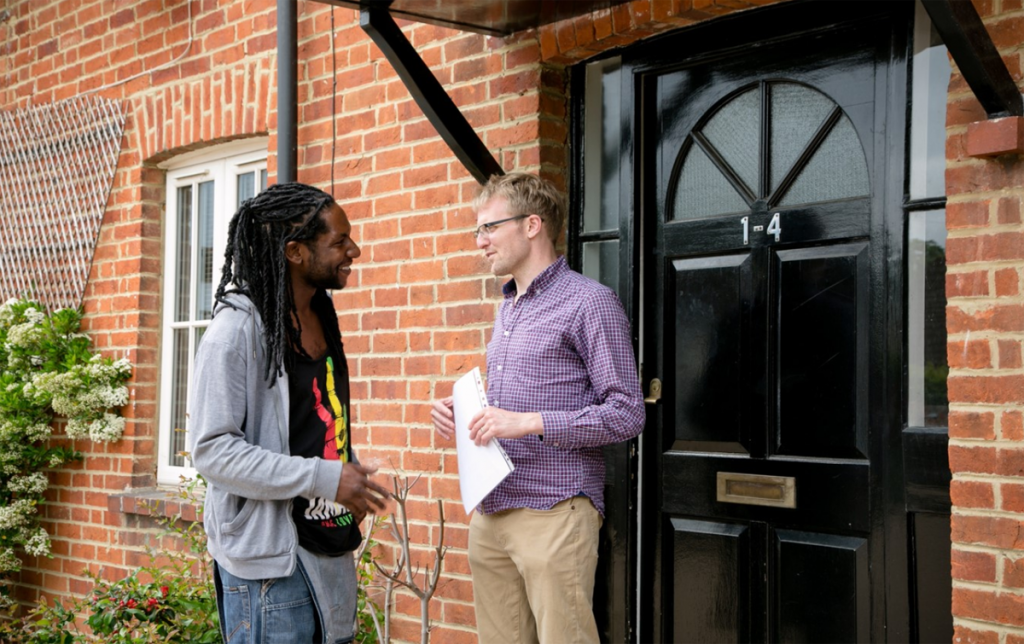
Giving people the Freedom2Work: the journey so far
Two years into the development of the Freedom2Work project with Elmbridge Rentstart, Support Worker Sam Pannell reflects on what’s worked, what hasn’t and how the project is changing people’s lives.
All too often unstable housing, fluctuating benefits and lack of training and support create obstacles for people already struggling to keep their heads above water.
Our Freedom2Work project set out to test whether a three-pronged approach of stable housing, targeted support, and match- funded saving could enable people to overcome these obstacles and break the cycle of homelessness and unemployment.
Freedom2Work has evolved since it started two years ago, bringing both opportunities and challenges that we would never have predicted when we began. As we step into the second quarter of year three in the project, I have taken some time to reflect on our progress and learning so far.
As I write this, 67 people have benefited from the Freedom2Work project, two thirds of which have sustained or entered into employment during their time with us.
Throughout the project, we have developed new links with local support agencies and services which have enabled clients to access training, qualifications and voluntary opportunities to assist the journey back to work.
As the confusion around working on benefit payments and Universal Credit continues, we have helped our clients to navigate this system. At the same time, the camaraderie of shared living has also enabled our tenants to learn from each other, build resilience, and gain confidence from seeing others successfully navigate these waters.
The savings scheme, which is a crucial part of the project’s infrastructure, was initially designed to support clients when they moved into employment as a means of bridging the gap when benefit payments stop and rental payments kick-in. However, we have learned that clients have often preferred to use this payment for different reasons, including deposits or rent in advance when they move on, or to furnish a new home. This may be a by-product of our support offered when clients find work, such as eliminating the need for food money through food bank referrals, finding grants for clothing, transport, and removing other initial costs associated with starting work.
Despite this innovative savings scheme, the high expense of the Surrey rental market has meant that even the best savers have struggled to afford the upfront costs of private renting.
In response, we have developed another step in the process, where some clients have transitioned into our managed properties outside of the project. This removes the initial deposit (alleviated through our guarantee scheme) and enables our clients to continue to save towards this next step.
Whilst this was not originally envisioned, and it is difficult to see if this is simply symptomatic of our geographical area, or if we have stumbled upon another crucial element of the national picture. This could also raise future areas of exploration, such as generating greater landlord appeal for tenants lacking a deposit, perhaps via some kind of credit rating. We know that the absence of a deposit is not a mark of high risk or bad character, and we want to help landlords share this understanding.
As we continue on this journey of developing a housing project to help people back into work, it is positive to reflect on what we have learnt and how we have adjusted as a result. But of course, the real highlights have come from the changes we have witnessed in the lives of our clients.

Mayor of Elmbridge, Shweta Kapadia, with Elmbridge Rentstart CEO Helen Watson attending the art show alongside a Freedom2Work client
I remember the look of delight on one client’s face when he found a job and moved into his own flat, the heartfelt thanks from another when we gave him a second chance when he felt that nobody would or perhaps my fondest moment was running an art exhibition to showcase the work of one of our clients, and the look on his face when the Mayor came on the opening night!
It has been an absolute privilege to be part of these stories and witness the transformation that the project has brought to so many. As we move into year three, we continue to hone the model and respond to the needs that emerge as we journey with our clients.
Whilst the process is still in formation, the destination remains the same – to provide our clients with the support, saving and stability needed to rebuild their lives.
